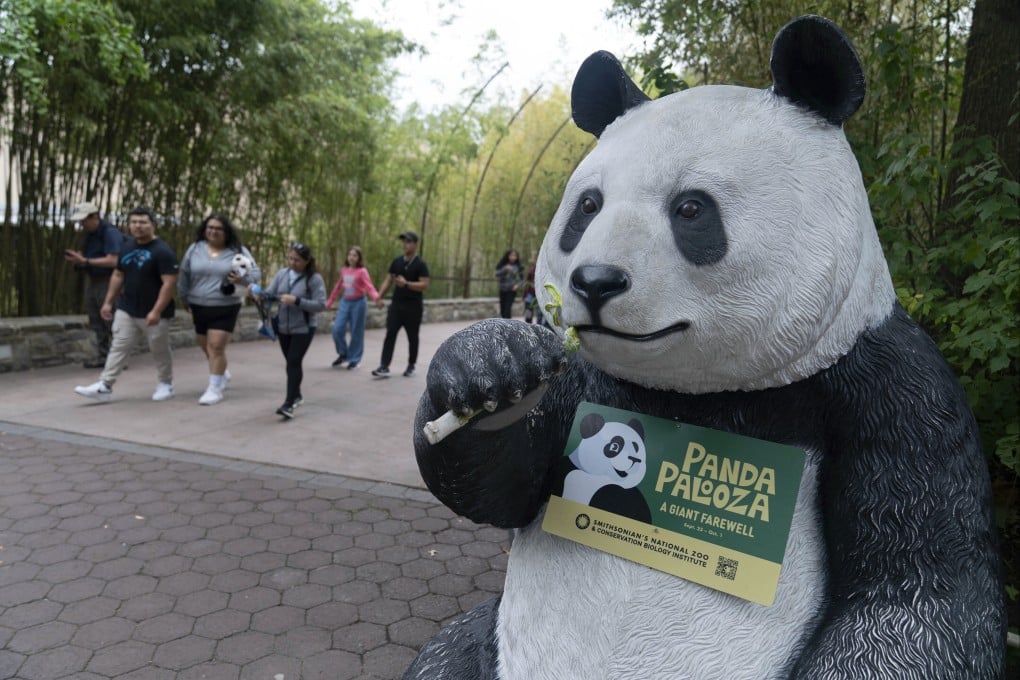Advertisement
Opinion | Whatever the state of US-China relations, panda diplomacy must end
- Panda leasing in the name of conservation only supports China’s breeding programme, which has had limited success in reintroducing captive-bred pandas to the wild
- It would be far better to concentrate on protecting panda habitats and other wildlife. All countries should stop using wild animals as state gifts
Reading Time:4 minutes
Why you can trust SCMP
3

Earlier this month, I wrote a piece on China’s panda diplomacy. Commenting on the departure of three pandas from the National Zoo in Washington and the return to China of pandas from other American zoos, I said pandas could still be sent to the US if the summit between President Xi Jinping and President Joe Biden went well.
Advertisement
It did. At a dinner party in his honour attended by business leaders, the Chinese president acknowledged the fondness of Americans, particularly children, for pandas. He said China would continue its cooperation with the US on panda conservation, a signal that pandas could return. “Pandas,” he added, “have long been envoys of friendship between the Chinese and American peoples.”
Pandas are no ordinary wild animal. Since 1972, when premier Zhou Enlai sent two pandas to the US, Americans have been overwhelmed by the cuteness of this rare and China-exclusive species. Yet, regardless of the presence of pandas in the US, bilateral relations have experienced highs and lows.
In the last seven years, the US-China relationship has weathered trade and tech wars and the turbulence triggered by the Covid-19 pandemic. In the American media, China is not portrayed as a cuddly panda. Those who favour a policy of engagement with China are disparaged as “panda huggers” and have fallen silent. Conservative politicians prefer to censure, rather than embrace, China, which they see as a menace.
China’s panda diplomacy, deployed to ingratiate the country with the outside world and to soften foreign criticism, has produced mixed results. As a Post report noted last year, after 50 years of panda diplomacy, China’s softest power has met “the hard reality of US-China tensions”.
Advertisement
Yet the appeal of the pandas themselves has not been adulterated by the roller-coaster ride of US-China relations. I visited Washington’s National Zoo three decades ago to see Ling Ling and Xing Xing, who had arrived after president Richard Nixon’s historic visit to China in 1972. What impressed me the most were the displayed letters written by American children to the two bears. They were among the sweetest “love” letters I have ever read.

Advertisement
